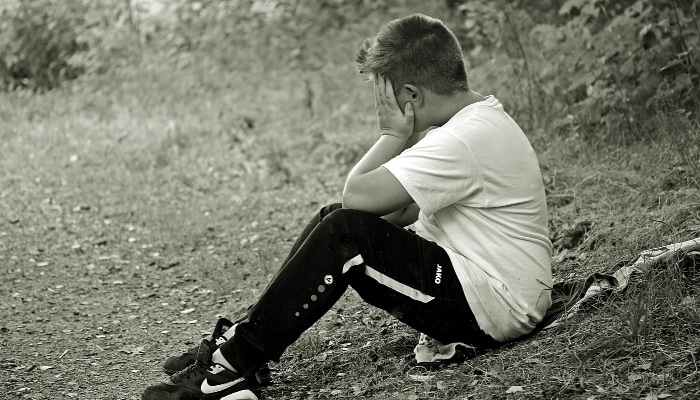By Christine Murray, PhD, LPC, LMFT, Director of the Healthy Relationships Initiative
October is National Bullying Prevention Month, so this question comes at the perfect time. Our Healthy Relationships Initiative (HRI) team is excited to partner with Triad Moms on Main on this blog series. In this series, we offer general guidance to relationship or family questions submitted by TMoM community members. If you’ve got a question to ask, please share it anonymously on the form here.
My elementary school-aged son told me after school the other day that another child is “being mean” to him by calling him names and excluding him on the playground. He also said that other kids were following this child’s lead and also saying mean things and leaving him out. How do I know if my child is being bullied, and how can I support him through this? ~ Concerned Mom in Greensboro
Dear Concerned Mom,
It’s hard as a parent to hear your child share difficult experiences they’ve had when you couldn’t be there to protect them. Because you weren’t there, and younger children don’t always have the words to describe fully what happened and how they feel, it’s especially difficult to know how to support your child in this situation.
From the information you’ve shared, it does raise a red flag that bullying is occurring, although it’s possible that your child is misinterpreting the situation or that this was a one-time occurrence that won’t turn into a pattern of bullying. So, your first step is see what additional details you can learn from your child. You might say, “Thank you for telling me this is going on. It’s important to tell me when something like this happens. I want to make sure I understand what’s happening, so what else can you tell me about what the other children have said and done?”
However your son responds, be sure to meet him with respect, concern, and non-judgment. As much as possible, try to stay calm. But, by remaining calm, you can assure him that you’re there for him. If your son views you as overreacting, he may worry that you’ll be mad at him or do something that could embarrass him. Reassure him that it’s not in any way his fault and that you’re here to help.
Second, if it does seem likely that your son is experiencing bullying, remind him that his safety is important, and that he deserves to be treated with kindness and respect. He may be worried that by telling you, the children will be even more aggressive, so reassuring him that his safety is important will let him see that your goal is for him to be safe and for the hurtful behaviors to stop.
Third, ask your son, “How would you like me to help you?” Although you likely have some ideas for what steps you could take, it’s a good idea to get your son’s input first. He’s most familiar with the situation and will feel the effects of the steps you take, so getting his input will help him feel like his opinion matters. Be careful not to make any promises that you may not be able to keep, such as by promising not to tell anyone. You can help to empower your son by helping him to think through different possible solutions and considering the possible outcomes for each one.
Fourth, to the extent possible, let your child know what steps you plan to take. Your son may be afraid that you’ll do something that will lead him to be at greater risk of harm, so keeping him informed will help him feel like he knows what’s going on and how it may impact him.
Fifth, develop a plan for how your son can take steps promote his safety. Talk with him about different possible scenarios he may face, and talk through — as well as possibly role play — some of the ways he could respond in those situations. Some steps on the plan may be proactive, such as avoiding the children in the hallway and on the playground. Other steps could include removing himself from the other children when they are being hurtful and talking through where to go for safety if a bullying incident begins.
Sixth, since these interactions occurred in school, consider speaking with school personnel to determine whether and how the school can provide support. You can learn about bullying policies and resources within Guilford County Schools here. If needed, you also can seek additional support in the community. For example, a mental health counselor could be helpful for supporting your son as he works through the emotional effects of feeling excluded and hurt by his classmates.
Once any immediate safety risks are removed, focus on helping your son rebuild his self-esteem and social connections, such as by connecting him with new extracurricular activities and carving out time with positive friends. As he gains greater self-confidence and more positive social connections, he can continue to heal in a supportive and uplifting environment.
Overall, the most important things to focus on if your child is experiencing or is at risk of bullying are showing your support, letting him see that his safety is important to you, working together to build solutions, and helping him heal and continue to have positive emotional and social growth.
Want to see more blogs like this and get notifications on local events and happenings? Subscribe to our free weekly newsletters here.

















Bullying is very serious, it’s not only harmful at the given moment but it can have an everlasting effect on a person’s self-image. It’s never okay, and it’s horrible that some children are horrified to speak to an adult about the situation for fear of possible repercussions from fellow peers for appearing to be a “snitch” or “tattletale”. I truly feel sorry for kids today, bullying no longer stays in school but follows them home through social media.